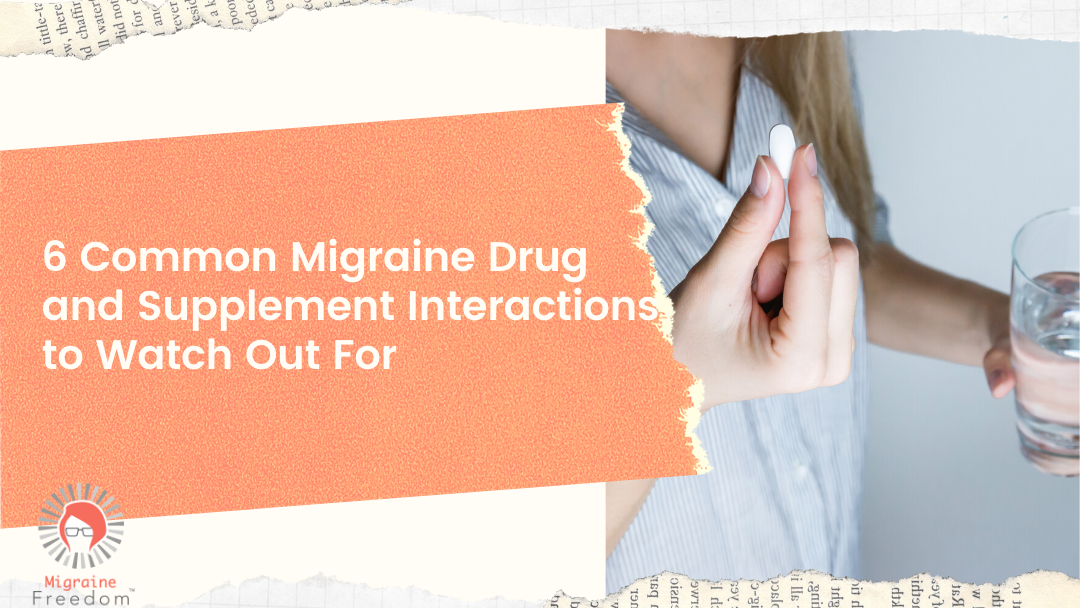A 2013 Consumer Report survey reported that only about a quarter of the population actually checks with their pharmacist about drug interactions.
Are you part of that 25%?
Don’t wait to be informed, inform yourself. If you decide to opt-in to a self-care program, you likely share our belief that no one will ever be more invested in your health, wellbeing and safety than you.
Of course, you should review all herbal supplements, vitamins, OTC drugs and prescription drugs with your physician and/or pharmacist, even if it seems tedious to list them all out. Taking pictures of the bottles may help!
If you tend to run out of time at your appointment, it may help do your homework first, starting with seeing if any medications that you are on have warnings about taking particular supplements at the same time. Then you can reach out to your doctor if you have specific questions.
Here are three tools you can use to look up your drugs and possible supplement interactions:
https://www.drugs.com/drug_interactions.html
https://www.webmd.com/interaction-checker/default.htm
https://reference.medscape.com/drug-interactionchecker (requires free registration)
Note that missing information has been found from most of these online checkers so it can’t hurt to check multiple sources.
Why is it crucial to check for potential supplement interactions with your migraine medications?
Many herbs change how your body metabolizes drugs that go through the liver. Another common issue is herbs that can interfere with or exacerbate the blood-thinning capabilities of warfarin and aspirin. Triptan drugs taken with certain herbs such as feverfew (or antidepressants) can lead to serotonin syndrome. Finally, if an herb has a similar effect to a drug (such as St. John’s Wort, which is sometimes used as an antidepressant) it can enhance the effect of the drug to a dangerous level.
Herbs that are often cited for having drug interactions include but are not limited to (including 6 in bold that you should be on alert for if you are taking certain migraine drugs):
- Black Cohosh
- Milk Thistle
- Echinacea *
- Garlic (large amounts) *
- Ginger (large amounts)
- Ginkgo Biloba * +
- Ginseng * +
- Goldenseal
- CoQ10
- Cranberry
- Evening primrose oil
- “Liver support” blends
- Valerian root +
- St John’s Wort *+
- Saw palmetto
- Melatonin
- Kava
- High dose vitamin C and other antioxidants
- Feverfew*
- Butterbur
- Green tea extracts
* These 6 common herbs were identified by researchers at the University of Utah in 2003 to cause problems specifically with the metabolism of certain migraine medications (triptans and tricyclic antidepressants).
+ These 4 herbs are known to worsen migraines and cluster headaches in some people on their own.
Further reading and examples:
- https://consumer.healthday.com/head-and-neck-information-17/headaches-health-news-345/herbs-headache-meds-could-be-dangerous-combination-513780.html
- https://www.drugs.com/slideshow/herb-drug-interactions-1069
- https://nccih.nih.gov/health/providers/digest/herb-drug
- https://www.consumerreports.org/vitamins-supplements/supplement-and-drug-interactions/
So should supplements be avoided because they are too dangerous?
That’s not what we are trying to say here. The point is to protect yourself by asking questions and giving your doctor a complete list of supplements. In a future article we will review common medications that actually deplete important nutrients and may require supplementation to avoid complications!
Some more tips for staying safe with supplements
- Don’t buy supplements at the supermarket or big box stores (this is where expensive pee can be found).
- Avoid buying through online resellers such as Amazon, if you can, because of rampant problems in the supply chain such as fraud, tampering, incorrect storage and shipping practices that can damage the product.
- Introduce new supplements one at a time, starting with 1/4 or 1/2 of a dose and increasing every few days to watch for reactions.
Disclaimer: We aren’t doctors, nor do we play them on TV. This information may not be construed as medical advice – speak with your doctor about any questions (which is somewhat redundant with what we are saying in this whole article, but just in case you missed the message… talk to your own health care provider about changes in your protocol!). Important! Do not stop taking your medication unless directed to do so by your doctor.




Oh wow! This is some seriously important information. who the heck would ever think that garlic would interact with medication?!
Well… our spices and aromatics are potent! But it did say LARGE amounts of garlic.
Wow! I didn’t know any of this. My mom get migraines. I am going to share this with her.
Appreciate you passing the info along, Nicole!
This is really important information! We often don’t think about drug interactions. It’s usually the first thing I check on.
This is great info that I hadn’t thought about. Although I don’t use the supplements you mentioned, what about essential oils? Does that make a difference?
I don’t know that that has been studied yet. I could see how it could have some of the same enhancing or metabolic rate changing effects, esp if used internally or very aggressively.
this is a serious topic and well researched. thank you. i used to take migraine medication both supplemental and prescription. it ended up being the prescription that helped kick those migraines but to each their own. thanks for investing time into this post.
Joy at The Joyous Living
Sadly, my sister gets migraines regularly and no drugs work for her! 🙁
I have taken a few migraine medications and I am glad I did not have any side effects. I love the herb list you made and will try a few of those for my migraine next time. Have you tried any?
Well.. this particular list are the ones to be extra careful with if you are also using meds (not necessarily a top list for migraines). Feverfew and Butterbur of course are some of the more famous herbs for migraines, but I don’t see them as addressing the root cause and you do have to be aware of interactions and withdrawal effects with them.
This is really an important facts for medications. It’s good to know interactions that may aggravate the disease.
Oh wow. I did not know that garlic could have some adverse drug interactions. It now worries me because we are heavy on garlic in our home. I use a lot in cooking, and my husband and sons sprinkle toasted garlic bits on their food and rice.
HI Annemarie, you could definitely bring it up to your doctor if you are concerned but when I hear “large quantities” of garlic I think about the people who eat multiple raw cloves per day for the health benefits… not just regular cooking.
Smart to check! I used to get migraines. Then I had a hysterectomy and they disappeared. I don’t miss them.
It’s always good to do research before taking a new medication. This is some wonderful information that could be vital to someone’s well-being.
Yes! I couldn’t agree with you more on researching and watching your dosage when introducing new supplements.
Great to know thanks. Although I have never actually had a migraine, when I have a headache I drink more water. I dont believe in taking pills.
Natural remedy is my preference. The natural it is the better. Thanks for the new recommendations.
Very helpful post since I’m planning to buy supplements and meds for my migraine. Thank you for this informative article.
This is some really great information. I have some friends who suffer from migraines and will be sharing this with them.
I use butterbur for a stuffy nose, which is seldom. Had no idea it’s supposed to help with migraines; no effect on mine. I research all meds and supplements very carefully, especially after the propranolol did reduce the migraines and stopped my essential tremor…..and severe tinnitus. Do you know how many drugs ruin hearing? (I quit the propranolol immediately and then told my doctor. It’s always a matter of drugs and supplements having benefits that outweigh the negative side effects. Very few.
Yikes, no I did not know that about tinnitus. Thank you for sharing your experience, Janelle.